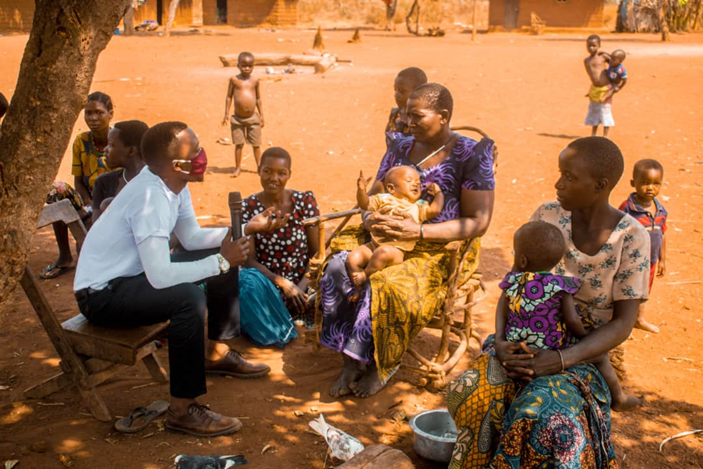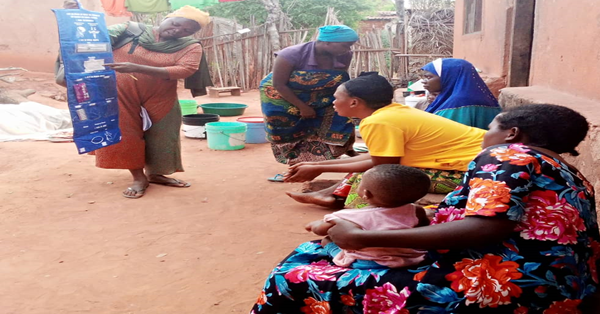Reaching the Most Vulnerable with Contraception During the Covid-19 Pandemic and Beyond.
Background
Contraception use is a key fundamental human right. Contraception is central in enhancing gender equality and empowerment of women, supporting girls to access education, and is key in the reduction of poverty. It plays a significant role in reducing maternal and child deaths, especially among adolescents and youth. Contraception is an excellent way of preventing unplanned pregnancies, averting health risks associated with unwanted pregnancies such as poor pregnancy outcomes including maternal deaths and unsafe abortions1
It is estimated that 75.7% of women of reproductive age in the world had their family planning needs met by 2019. However, in Sub Sahara Africa, uptake of contraception is still low, with less than half of family planning needs being in 2020. Reasons for this low uptake of contraception include inaccessibility of family planning services, especially among unmarried women of reproductive age, cultural/religious factors, fear of side effects, peer influence, family conflicts over use of family planning, and low quality family planning services.

Covid-19 has posed challenges in contraception uptake in many countries2. Despite the pandemic, countries need to continue investing in the health system to ensure progress towards the achievement of SDG target 3.7 of ensuring universal access to sexual and reproductive health-care services, including for family planning, information and education. Prioritisation of interventions and the use of innovative approaches are needed to ensure the most vulnerable and marginalised are served.
Amref believes that focus should be on serving the last mile communities with Family Planning
Amref Health Africa is committed to transforming lives, particularly of the most vulnerable, such as teenage girls, to enhance lasting health change in Africa. Amref works with other stakeholders to support responsive family planning services, particularly for adolescents and the youth. Appropriate family planning for this group not only enhances their current health but also contributes towards improving their future health and economic prospects.

Amref advocates for, and supports quality family planning services by building the capacity of health workers in technical and managerial skills using traditional methods as well as innovative approaches through technology. Essential equipment and supplies are provided to enhance the environment of care.
However, it is no use to have quality services without demand. Amref has over the years worked with communities mainly through community health workers to empower them with the right information to support informed choices. Amref has deployed innovative models, including the use of mobile phones and social-media platforms to reach the youth with accurate information on family planning. Advocacy for social accountability is a vital component of Amref’s work undertaken in Uganda, Kenya, Tanzania, Malawi, Ethiopia, Zambia, and South Sudan.
Our Asks
Amref Health Africa, therefore, urges as follows:
1. African Governments and Policy Makers:
i. Increase the budget for family planning services and ensure a conducive, non-judgmental and supportive environment for all people – particularly youth – to access the services.
ii. Invest in institutionalising the community health workers into the public health workforce given the critical role they play in empowering the communities, not only in family planning but in all matters related to health.
iii. Strengthen measures to guarantee the accessibility of health services to women, especially in rural areas and promote maternal health through access to contraception in order to achieve women’s right to health, in keeping with Article 14(1) (C) of Maputo Protocol (1990).
2. Donors:
i. Prioritise and increase funding for family planning – since it’s not only a right, but also an investment that yields high social and economic returns.
3. Civil Society Organisations, and other stakeholders:
i. Join hands in scaling up the provision of appropriate contraception information, counselling and access to quality services.
Our Commitment
Amref Health Africa commits to use its links, resources including its programmatic footprint in over 30 countries and community trust capital to empower communities to realise their rights in accessing contraception through media campaigns, Community Health Worker facilitated community dialogues, events and household visits, and peer champions/ peer networks to support family planning referrals, as well as sexual reproductive health school clubs have to increase knowledge among adolescents on SRH, encourage positive behavior and increase use of SRH services among youth.
1 World Health Organization (WHO). (2020). Family planning/contraception methods. Retrieved from: https://www.who.int/news-room/fact-sheets/detail/family-planning-contraception
2 Oluoch-Aridi, J., Chelagat, T., Nyikuri, M. M., Onyango, J., Guzman, D., Makanga, C., … & Dowd, R. (2020). COVID-19 Effect on access to maternal health services in Kenya. Frontiers in Global Women’s Health, 1, 19.
